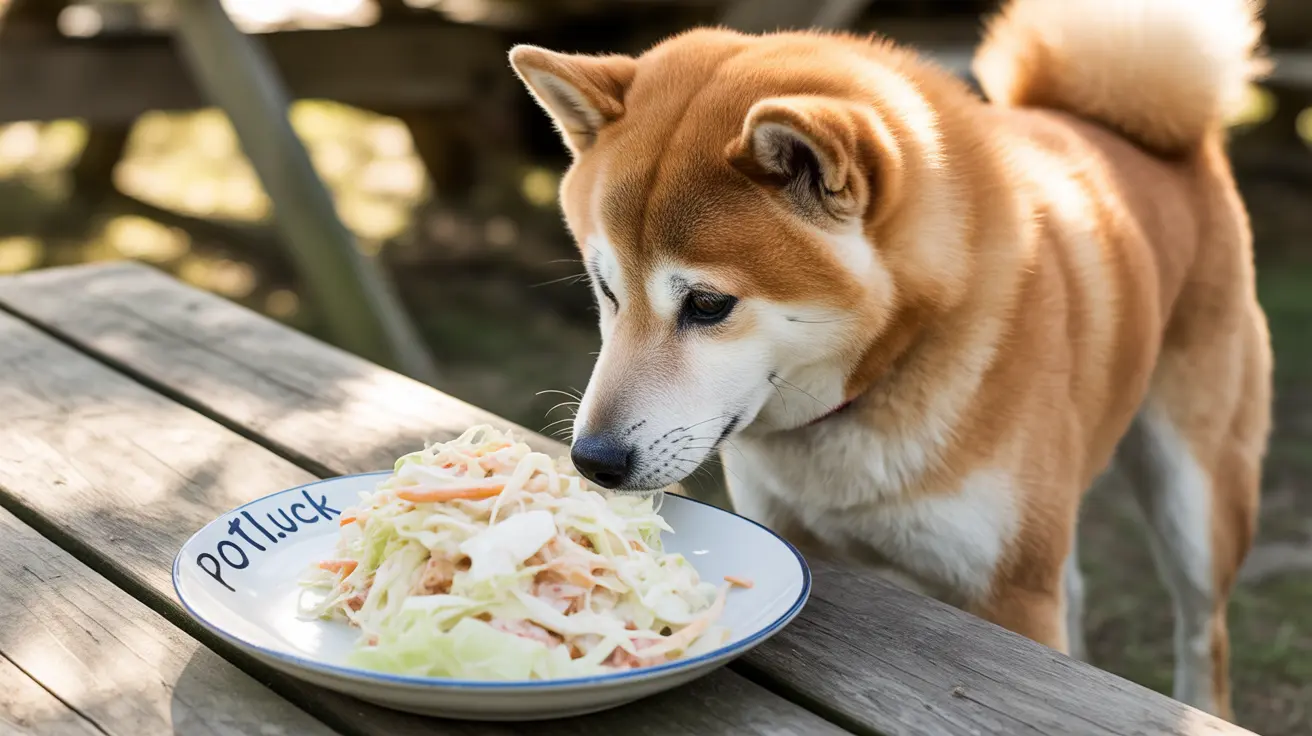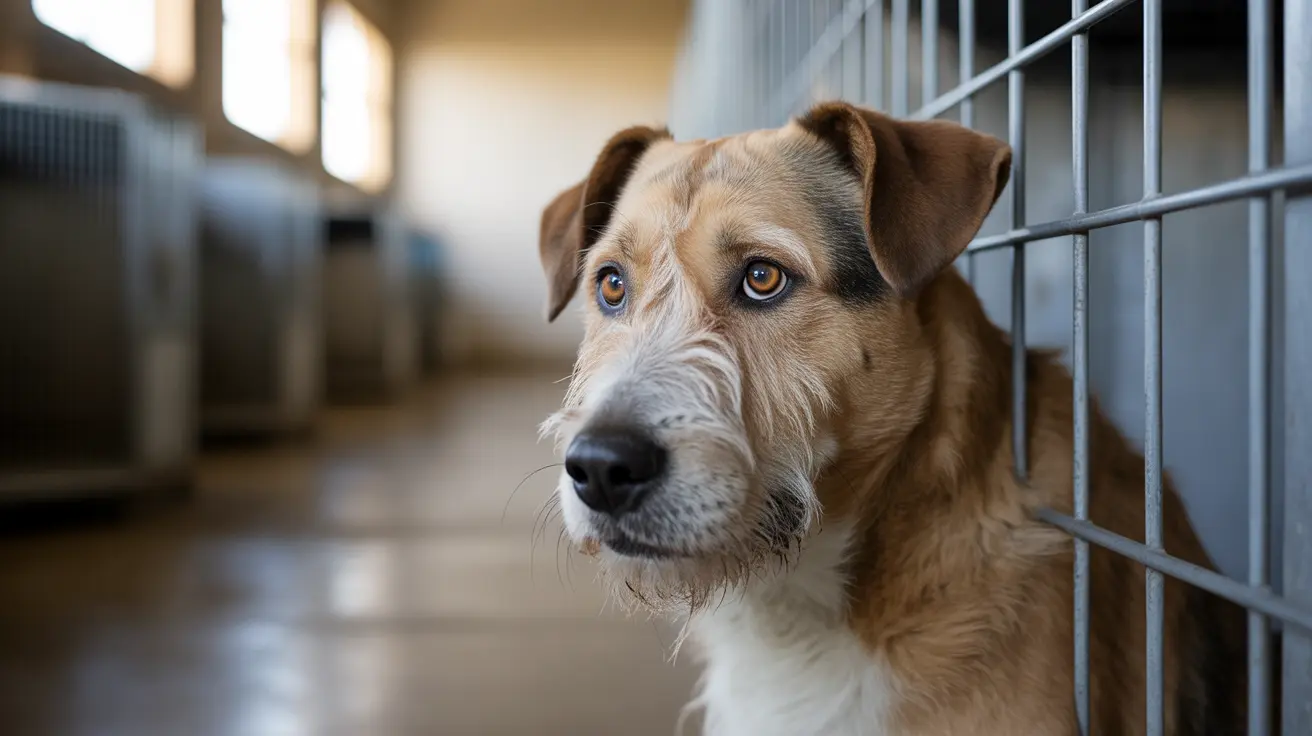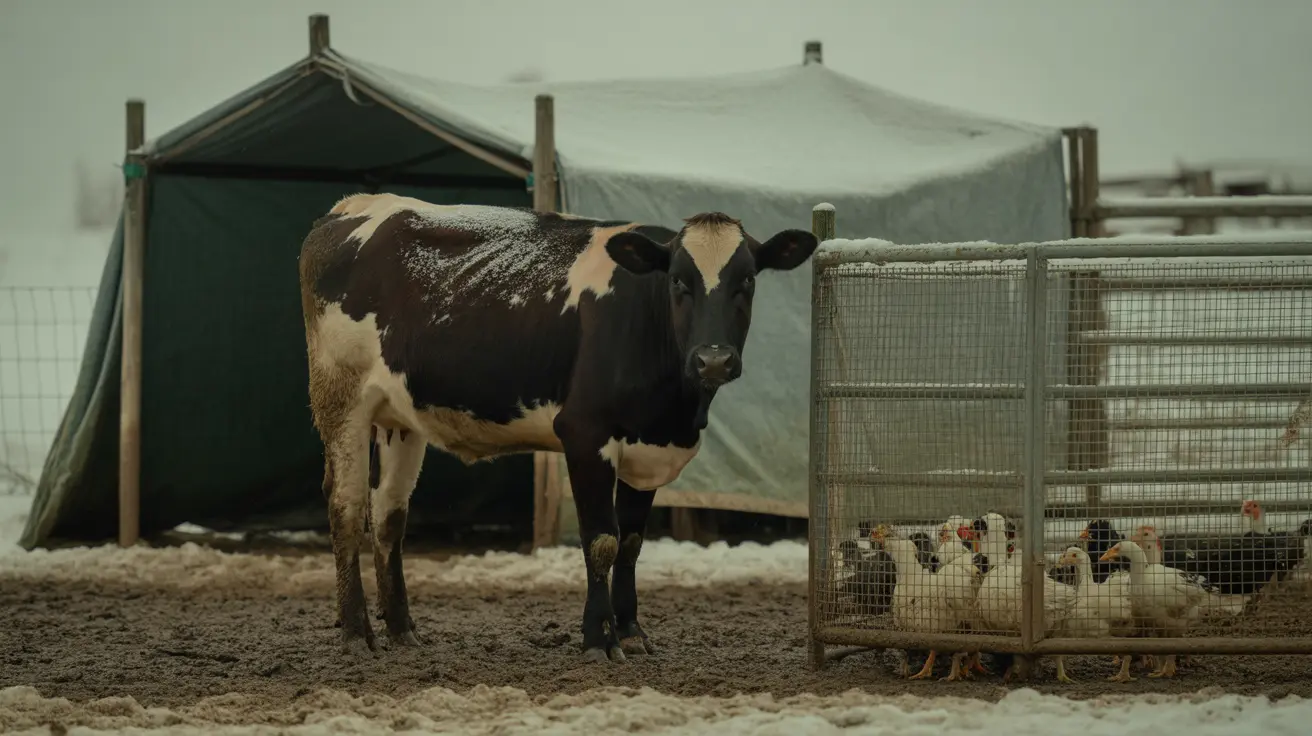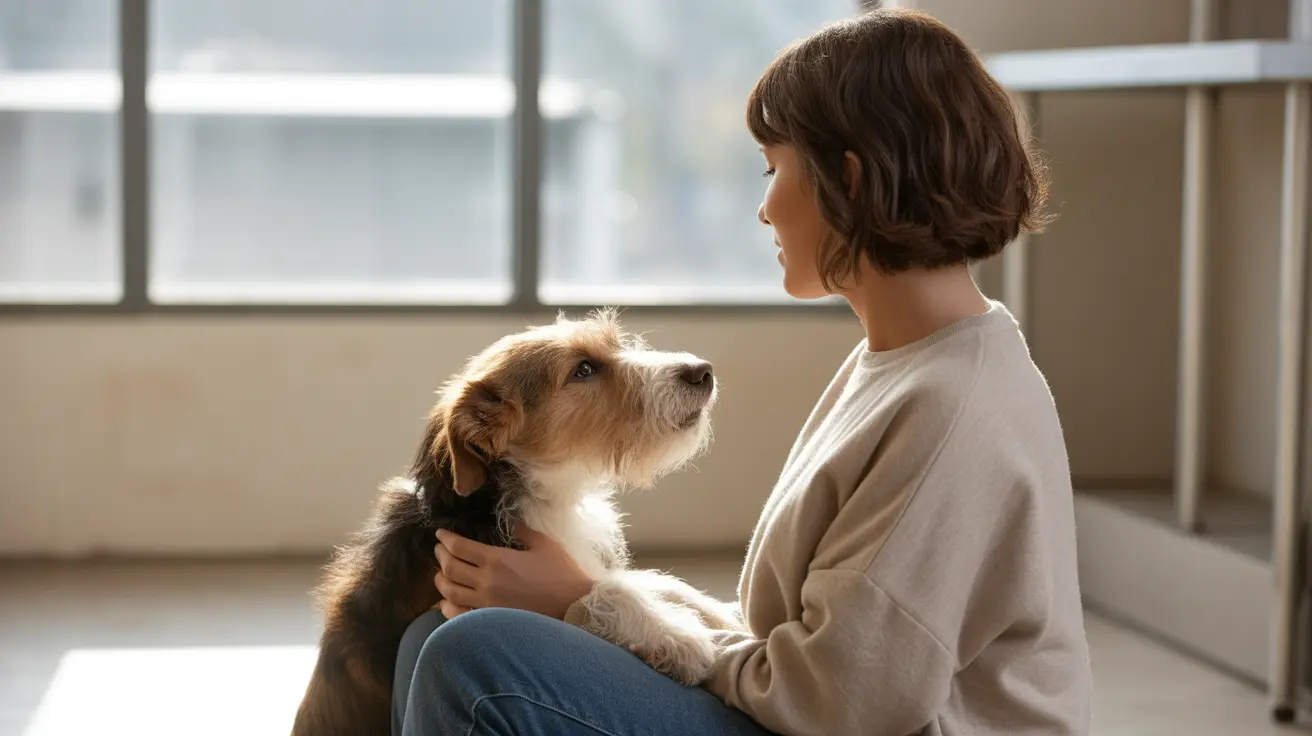As a pet owner, you might wonder if sharing a spoonful of coleslaw with your furry friend is safe. While dogs may show interest in this popular side dish, understanding the potential risks and dangers of feeding coleslaw to your canine companion is crucial for their health and safety.
In this comprehensive guide, we'll explore why coleslaw isn't recommended for dogs, what ingredients pose the biggest risks, and what to do if your dog accidentally consumes this common picnic food.
Understanding the Dangers of Coleslaw for Dogs
Coleslaw typically contains several ingredients that can be harmful or even toxic to dogs. While some base ingredients might seem harmless, the combination and preparation methods make this dish unsuitable for canine consumption.
Common Harmful Ingredients in Coleslaw
The primary concerns in coleslaw include:
- Mayonnaise: High in fat and calories, potentially triggering pancreatitis
- Onions and garlic: Toxic to dogs, causing dangerous blood cell damage
- Seasonings and spices: Can cause digestive upset and other health issues
- Vinegar-based dressings: May irritate your dog's stomach
Health Risks Associated with Dogs Eating Coleslaw
When dogs consume coleslaw, they may experience various health issues ranging from mild to severe:
- Digestive upset and diarrhea
- Vomiting and nausea
- Pancreatitis (especially from high-fat mayonnaise)
- Anemia (if onions or garlic are present)
- Dehydration from gastrointestinal issues
Safe Vegetable Alternatives for Dogs
Instead of coleslaw, consider these dog-friendly vegetable options:
- Plain, steamed cabbage in small amounts
- Raw or cooked carrots
- Green beans
- Cucumber slices
- Plain pumpkin
What to Do If Your Dog Eats Coleslaw
If your dog has consumed coleslaw, take these immediate steps:
- Check the ingredients list
- Monitor for unusual symptoms
- Contact your veterinarian if concerning symptoms appear
- Keep your dog hydrated
- Watch for signs of allergic reactions
Prevention and Best Practices
To avoid coleslaw-related incidents:
- Keep human food out of your dog's reach
- Train your dog not to beg at the table
- Store leftovers properly
- Inform guests not to feed your dog table scraps
Frequently Asked Questions
Can dogs safely eat coleslaw, and what ingredients in it are harmful to them?
No, dogs should not eat coleslaw. While plain cabbage and carrots are generally safe in moderation, the mayonnaise, seasonings, and possible inclusion of toxic ingredients like onions and garlic make coleslaw unsafe for dogs.
What should I do if my dog accidentally eats coleslaw containing onions or mayonnaise?
Monitor your dog closely for symptoms like vomiting, diarrhea, or lethargy. If the coleslaw contained onions or if your dog shows concerning symptoms, contact your veterinarian immediately.
How can coleslaw affect my dog's digestive health and risk of pancreatitis?
The high fat content in mayonnaise-based coleslaw can trigger pancreatitis, while other ingredients may cause digestive upset. Even small amounts can lead to vomiting, diarrhea, and abdominal pain.
Are plain cabbage and carrots from coleslaw safe treats for dogs, and in what amounts?
Plain, unseasoned cabbage and carrots are safe for dogs in moderation. Offer small amounts of steamed cabbage or raw carrots as occasional treats, making up no more than 10% of their daily food intake.
What are healthy vegetable alternatives to coleslaw that I can give my dog?
Safe alternatives include plain steamed green beans, cucumber slices, cooked plain pumpkin, and small pieces of raw carrots. Always introduce new vegetables gradually and in small amounts.
Remember, while sharing food with your pet can be tempting, it's best to stick to dog-specific treats and foods designed for their dietary needs. When in doubt, consult with your veterinarian about safe food choices for your furry friend.






